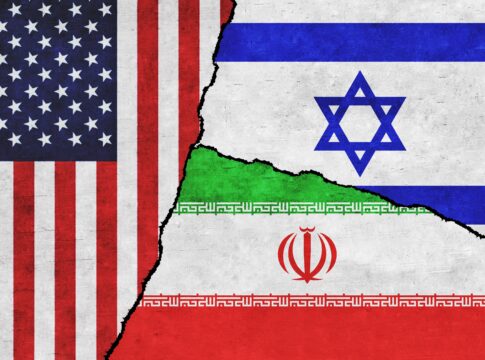Iran finds itself cornered as US-Israeli strikes devastate its nuclear sites, placing the clerical regime in a precarious position between survival and retaliation. The Islamic Republic’s leaders, including Supreme Leader Ayatollah Ali Khamenei, have issued stern warnings of consequences while scrambling to formulate a response that won’t trigger further escalation. What kind of options does Iran have at play?
Iran’s Limited but Dangerous Response Options
The Iranian regime faces difficult choices after devastating strikes on its nuclear facilities reportedly carried out with US-supplied advanced weaponry. Iranian Revolutionary Guard Corps (IRGC) issued an ominous statement declaring that “The invaders of this land must now expect regrettable responses,” while suggesting they have “options beyond the understanding and calculations of the delusional aggressor front.”
Security analysts identify three primary paths Iran might pursue in retaliation: abandoning nuclear treaties, direct military action, or economic warfare. Withdrawal from the Nuclear Non-Proliferation Treaty would free Iran to develop nuclear weapons covertly, though its technical capabilities have been severely compromised by recent strikes.
Joy Reid says America doesn't have the moral authority to decide whether Iran has a nuclear program.
I say people who want to blow us up with a nuclear bomb should be prevented from getting a nuclear bomb.
This lady needs to crawl back under her rock. pic.twitter.com/tiKjw5s2id
— Gunther Eagleman™ (@GuntherEagleman) June 25, 2025
Proxy Warfare and Terror Threats
Iran maintains a powerful network of proxy forces across the Middle East that could be activated for asymmetric warfare against American interests. These include Hezbollah in Lebanon, Hamas in Gaza, Houthi rebels in Yemen, and various militia groups in Iraq and Syria that could target US military installations throughout the region.
Former FBI assistant director Chris Swecker raised alarms about domestic threats, stating: “What terrorist organization would not take advantage of that access to this country without having to go through airports and any type of screening whatsoever, and not be here in a sleeper capacity?” Some security experts warn that Iran might consider deploying radiological dispersal devices or “dirty bombs” against Israel in an extreme scenario.
JUST IN: 🚨 President Trump has NO intention to strike back against Iran
Source: US officials
pic.twitter.com/zFcqAdQiio— ADAM (@AdameMedia) June 23, 2025
Economic and Cyber Warfare Capabilities
Iran’s most immediate leverage may lie in disrupting global oil supplies through the strategic Strait of Hormuz, where approximately 20% of the world’s oil passes. Previous conflicts have seen Iran target oil tankers and infrastructure, a tactic that could send global energy prices soaring and damage Western economies.
Cyber warfare represents another asymmetric capability that Iran has developed significantly in recent years. Iranian hackers have demonstrated sophisticated abilities to target critical infrastructure, government systems, and financial institutions, offering Tehran a means to inflict damage without conventional military confrontation.
The clerical regime’s historical priority has been survival above all, suggesting that despite fierce rhetoric, Iran’s response will be calculated to avoid triggering overwhelming military retaliation. With its leaders reportedly in hiding and nuclear program severely damaged, Iran’s most pragmatic path may be to endure current losses while seeking diplomatic and economic leverage through international forums.

